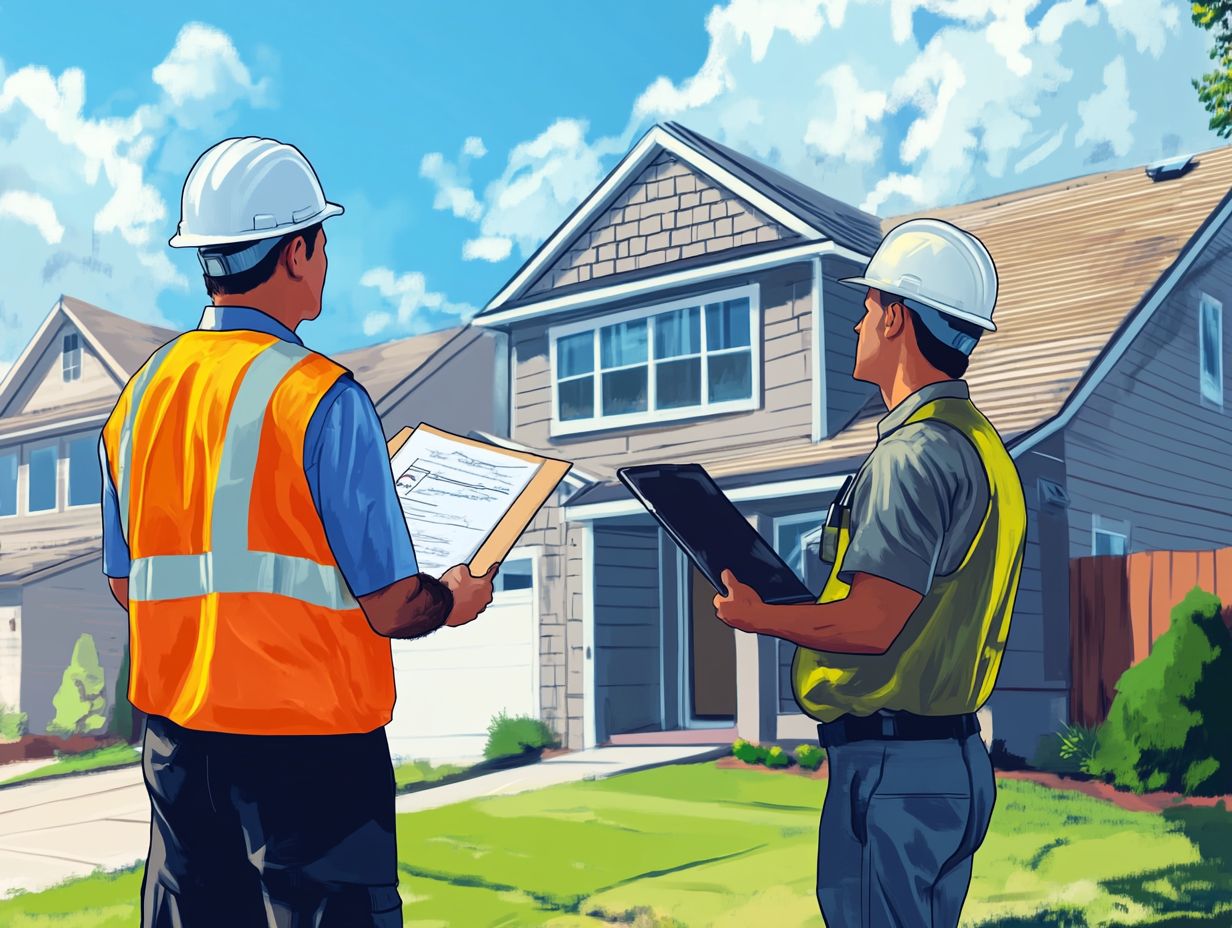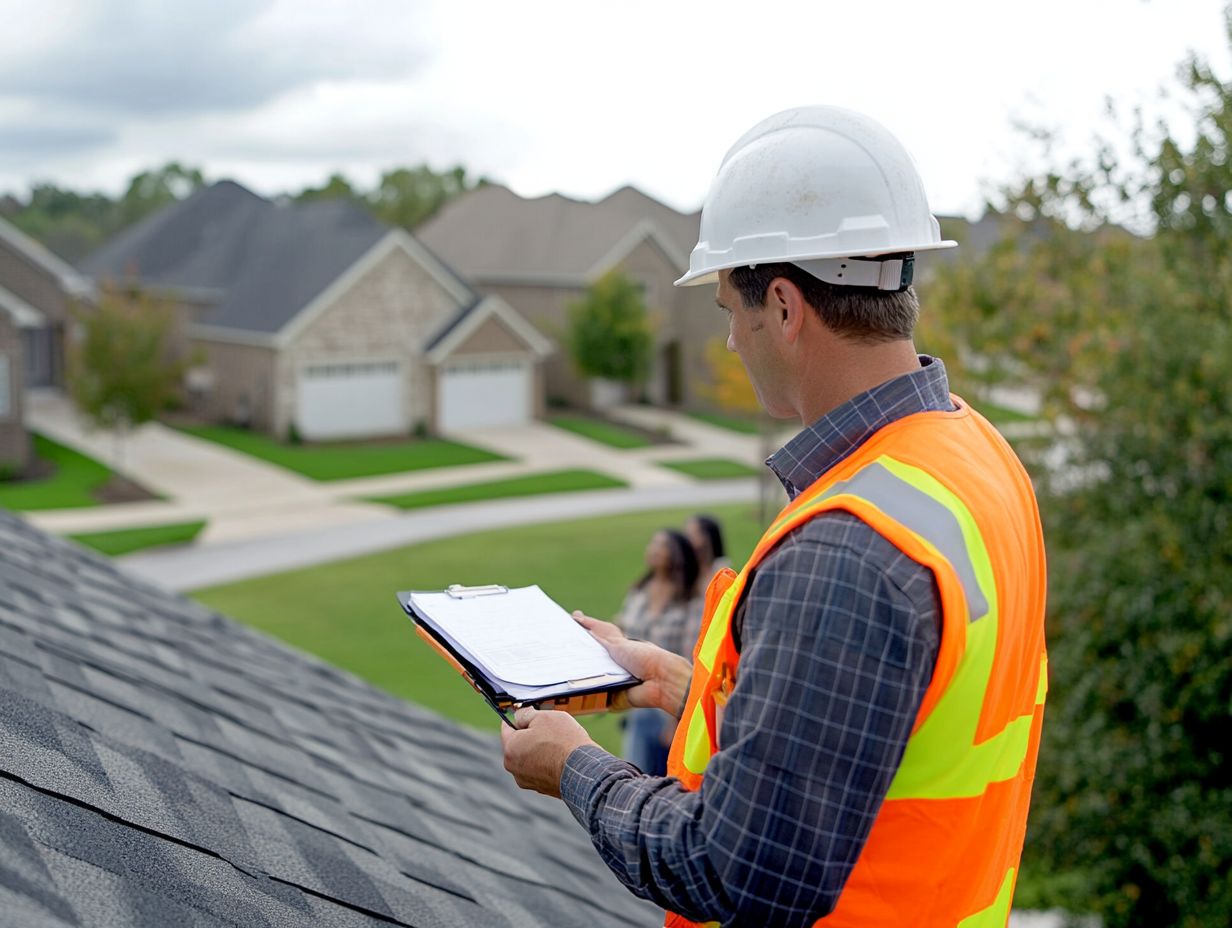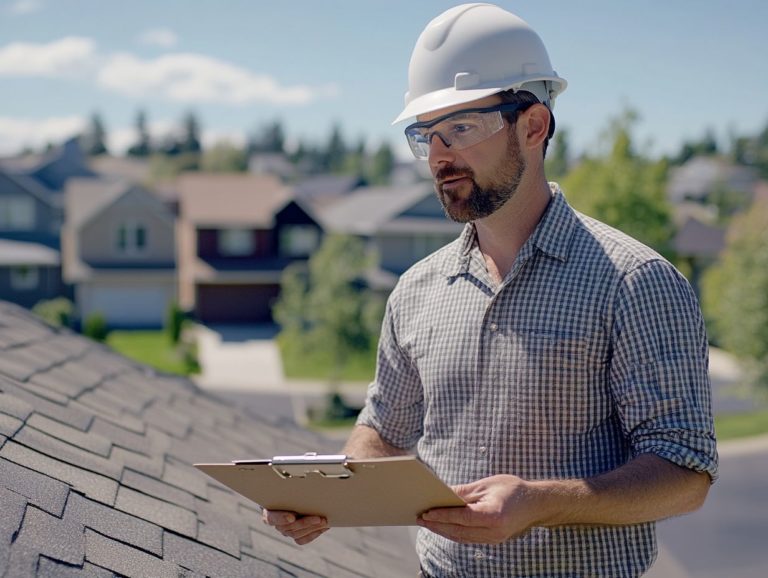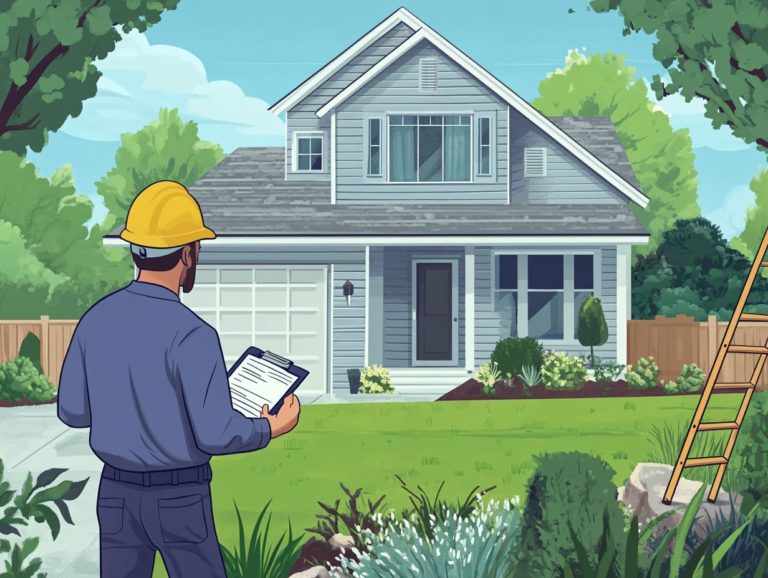The Impact of Home Inspections on Property Value
Buying or selling a home is a significant milestone, and grasping the importance of home inspections can truly make a difference in your journey.
Home inspections serve a dual purpose: they not only help pinpoint potential issues but also enhance the overall value of your property. This article delves into what home inspections involve, the myriad benefits they offer, and how they can impact a property s market worth.
You ll also discover how to effectively prepare for an inspection, select the right inspector, and interpret the results, ensuring you make informed decisions throughout the process.
Whether you find yourself in the role of buyer or home seller, this guide will arm you with the essential knowledge for a successful transaction.
Contents
Key Takeaways:

Home inspections can improve the value of a property by identifying potential issues and allowing for necessary repairs to be made before listing. Understanding the importance of home inspections in property sales is crucial, as factors such as the age of the property, location, and condition can all impact the value determined by a home inspection.
It’s important to prepare your property for a home inspection and choose a qualified inspector who can provide a thorough and accurate report for proper understanding and decision-making.
Understanding Home Inspections
Understanding home inspections is a crucial aspect of the real estate landscape, particularly for you as a buyer or home seller. A home inspection entails a detailed examination of a property s condition, checking major systems like plumbing, electrical, and HVAC.
This insight into the home s structural integrity gives you the power to make informed financial decisions. This process is essential for maintaining transparency in transactions and uncovering hidden issues that could affect your confidence as a buyer.
Whether you re navigating the market in Charlotte, NC, or Northern Colorado, professional home inspectors are invaluable in this assessment.
What is a Home Inspection?
A home inspection is your gateway to understanding a property s true condition, carried out by qualified home inspectors who know what to look for.
This detailed evaluation typically focuses on essential areas like the roof, plumbing, electrical systems, HVAC, and structural integrity. Inspectors carefully look for any problems that could impact safety, functionality, and the overall value of the home.
The inspection report you receive will be an invaluable asset in your real estate journey, equipping you with the knowledge needed to make informed decisions and negotiate repairs or price adjustments effectively.
Hiring qualified inspectors is crucial; their expertise guarantees a thorough examination and trustworthy findings, ultimately safeguarding your interests as a potential homeowner.
Benefits of Home Inspections

Home inspections provide a wealth of advantages for both sellers and buyers, highlighting the importance of home inspections in real estate, and profoundly influencing property value and the negotiation process in transactions.
As a home buyer, gaining insight into potential safety issues and hidden concerns boosts your confidence, giving you the power to make informed investment decisions.
For sellers, presenting a well-documented inspection report enhances aesthetic appeal and simplifies the selling process. In essence, the role of home inspections in home sales is a critical tool for fostering trust and fairness in the real estate market.
Improving Property Value
Home inspections can greatly enhance your property’s value by pinpointing areas that need maintenance or upgrades, highlighting the importance of home inspections in property transactions, and ultimately influencing appraisal outcomes.
Address these issues now to improve your property’s appeal and marketability! When you take the proactive step to address these issues, you not only elevate your property’s appeal but also align it more closely with current market expectations.
For example, consider modernizing an outdated kitchen with sleek new countertops and energy-efficient appliances, or refreshing bathrooms with updated fixtures and improved lighting.
Never underestimate how landscaping can transform your property! Adding new sod, vibrant plants, or a beautifully designed patio can create a striking first impression.
By making these targeted improvements, you can craft a desirable living space that captivates potential buyers and justifies a higher asking price.
Identifying Potential Issues
One of the primary purposes of home inspections is to uncover potential issues that could affect the livability of a property. This includes structural defects, environmental hazards, and safety concerns.
Comprehensive evaluations can expose a range of problems, from foundation cracks that jeopardize stability to pest infestations that endanger health and property value. Outdated electrical systems may present serious fire hazards and require extensive updates to meet current safety standards.
By revealing concealed concerns, you gain essential insights that can profoundly influence your investment decision. Addressing these issues before finalizing a sale ensures safety and comfort and helps avoid costly repairs in the future. This makes the home significantly more secure for its eventual occupants.
How Home Inspections Affect Property Value

Home inspections significantly influence property value, offering both buyers and sellers insights into a property’s true condition and its key systems, highlighting the value of home inspections for home sellers.
This knowledge directly affects market value and buyer confidence. Understanding the importance of home inspections in real estate deals can provide a comprehensive inspection report that serves as a powerful tool during negotiations and highlights areas for potential enhancements.
Ultimately, this can play a crucial role in determining the overall equity of the home.
Factors That Determine Value
Several factors determine your property’s value. These include its aesthetic appeal, the condition of major systems revealed during home inspections for investment properties, and insights gained from regular maintenance.
The location of your property is also paramount. Areas with reputable schools or convenient access to public transportation typically command higher values. The overall design of your home can transform it from merely functional to genuinely inviting, creating strong allure for potential buyers.
For example, a well-maintained garden or an updated kitchen can significantly enhance your property’s market appeal. Home improvements, such as energy-efficient windows or smart home technology, boost comfort and promise a better return on investment.
Regular inspections uncover potential issues. Addressing them proactively helps safeguard your property’s value over time.
Preparing for a Home Inspection
Get ready for your home inspection! It can significantly impact your selling price and boost buyer confidence regarding your property’s condition, making the importance of home inspections for property buyers clear.
Proper preparation entails completing necessary updates and addressing maintenance issues. This sets the stage for a seamless inspection process.
Consider a pre-listing inspection a valuable asset. It allows you to identify concerns ahead of time, fostering transparency and boosting confidence throughout the selling journey.
How to Get Your Property Ready

To prepare your property for a home inspection, prioritize maintenance, tackle necessary repairs, and enhance the aesthetic appeal of your space. This thoughtful preparation heightens the likelihood of a successful inspection and significantly boosts your property s market value.
Start by addressing visible landscaping issues, such as overgrown bushes or dead plants; these can create an uninviting first impression. Take care of minor repairs, like fixing leaky faucets or squeaky doors. This demonstrates that your home has been well-maintained and cared for.
Don t overlook major systems either. Ensuring that plumbing, electrical, and heating, ventilation, and air conditioning systems are all functioning properly can help you avoid potential deal-breakers during the inspection. Ultimately, these proactive steps contribute to a welcoming atmosphere that reflects the overall quality of your home.
Choosing a Qualified Home Inspector
Selecting a qualified home inspector is essential for obtaining a precise evaluation of your property’s condition.
This choice enhances buyer trust and instills confidence in the entire transaction process.
What to Look for in an Inspector
When choosing a home inspector, consider their qualifications and experience. Familiarity with local regulations and common property issues is vital.
A qualified inspector should have certifications from recognized organizations, like the American Society of Home Inspectors or the International Association of Certified Home Inspectors. These credentials show their commitment to industry standards.
Look for strong communication skills and attention to detail. These traits empower them to provide clear and thorough reports.
Check references and read reviews from past clients. This will help you gauge the inspector’s reliability and quality of work.
Doing your homework is important. It ensures you select an inspector who can provide a comprehensive assessment, giving you peace of mind during a significant investment.
Interpreting Home Inspection Reports
Understanding home inspection reports is key, whether you re buying or selling. These documents reveal important insights about safety issues and structural integrity.
Being skilled in this area helps you make informed decisions in your real estate journey.
Understanding the Results
Dive into the findings of a home inspection report. Identify which issues need immediate attention and which can wait.
Streamline this by categorizing issues into four clear categories: urgent, important, minor, and deferred.
- Urgent: Safety hazards or structural concerns that must be addressed immediately.
- Important: Issues that may affect property value or comfort but aren t critical right now.
- Minor: Cosmetic or surface-level issues.
- Deferred: Repairs that can be postponed but still need documentation.
Reports often highlight findings related to plumbing, electrical systems, roofing, and HVAC systems. Clearly communicate these categories with buyers or sellers.
Effective communication means summarizing findings, explaining urgency, and suggesting actionable steps. This approach helps manage expectations and supports negotiation.
Schedule your home inspection today to ensure your investment is protected!






